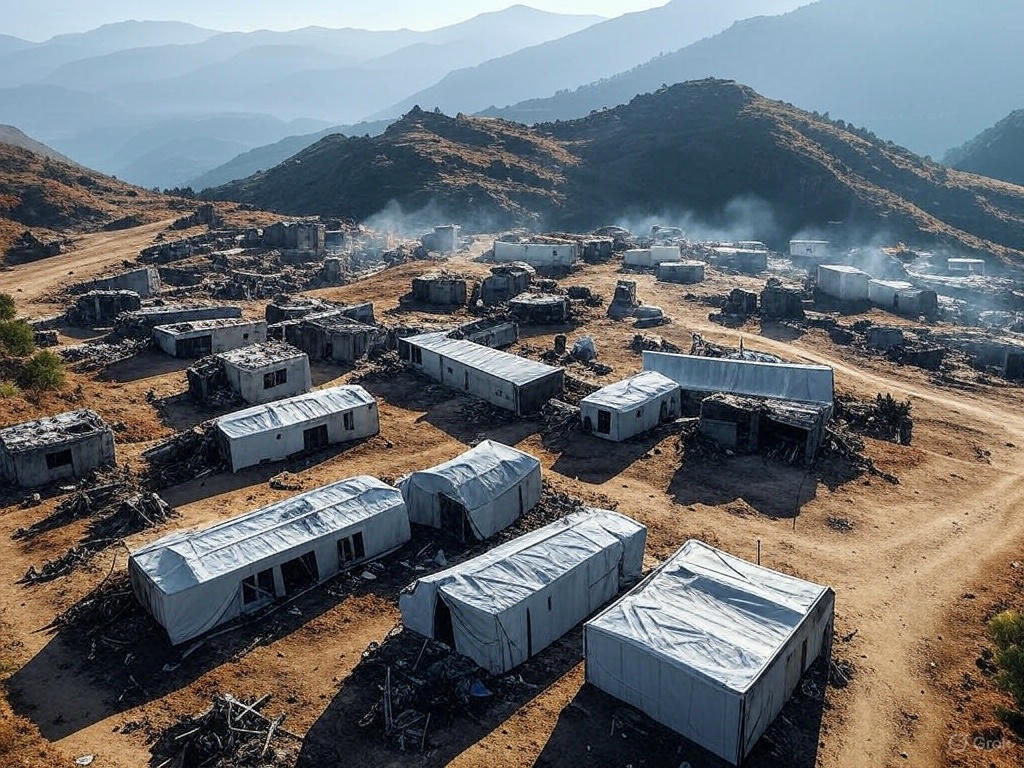Operation Sindoor 2025: India’s Precision Strike on Pakistan Terror Camps After Pahalgam Attack

The Pahalgam Massacre: A Nation Mourns
On April 22, 2025, the tranquil valley of Pahalgam in Jammu and Kashmir, a haven for tourists seeking nature’s embrace, was shattered by a horrific act of terrorism. A group of heavily armed terrorists, operating under the banner of The Resistance Front—a proxy for the Pakistan-based Lashkar-e-Taiba (LeT)—unleashed chaos, indiscriminately firing upon civilians. The attack claimed 26 lives, including 25 Indian tourists and one Nepali national, leaving families devastated and the nation in mourning. Among the victims were men, women, and children whose only crime was seeking a moment of peace in one of India’s most scenic destinations.
The brutality of the Pahalgam terror attack sent shockwaves across the country, igniting outrage and a unified call for justice. Prime Minister Narendra Modi, in a somber address, vowed that the perpetrators and their sponsors would face “unimaginable consequences.” This promise laid the foundation for a bold and decisive response: Operation Sindoor, a military operation that would redefine India’s stance against terrorism.

Operation Sindoor: A Surgical Blow to Terror
On May 7, 2025, under the cover of dawn, the Indian Defence Forces launched Operation Sindoor, a meticulously planned retaliatory strike targeting nine terrorist camps in Pakistan and Pakistan-occupied Kashmir (PoK). Named in honor of the women who lost their husbands in the Pahalgam massacre, the operation symbolized India’s unwavering resolve to eradicate terrorism at its source. In a display of precision and coordination, the Indian Army, Air Force, and Navy executed 24 missile strikes within 25 minutes, obliterating key terrorist infrastructure linked to groups like Lashkar-e-Taiba, Jaish-e-Mohammed (JeM), and Hizbul Mujahideen.
The targets included the LeT headquarters in Muridke, a sprawling 200-acre complex notorious for training terrorists like Ajmal Kasab, the mastermind behind the 26/11 Mumbai attacks, and the JeM base in Bahawalpur, linked to the 2019 Pulwama attack. Other camps in Muzaffarabad, Kotli, and Bhimber, known for facilitating cross-border infiltration, were also reduced to rubble. According to Lieutenant General Rajiv Ghai, over 100 terrorists, including high-value targets like Yusuf Azhar and Abu Jundal, were neutralized, delivering a crippling blow to Pakistan’s terror ecosystem.
"“Operation Sindoor was not just a military strike; it was a testament to India’s resolve to hunt down terrorists, no matter where they hide.” — Defence Minister Rajnath Singh ""
Pakistan’s Complicity Laid Bare
The aftermath of Operation Sindoor unveiled undeniable evidence of Pakistan’s deep-rooted support for terrorism. Funerals of slain terrorists, including Qari Abdul Malik and Khalid, saw the presence of senior Pakistan Army officers and officials from Jamaat-ud-Dawah, the banned organization led by LeT founder Hafiz Saeed. These public displays of solidarity, captured on satellite imagery and corroborated by intercepted communications, shattered Pakistan’s claims of innocence. Foreign Secretary Vikram Misri, in a press briefing, remarked, “Pakistan’s reputation as a global hub of terrorism is rooted in decades of cross-border attacks against India.”
operation sindoorThe presence of Pakistan’s military elite at these funerals was a stark reminder of the state’s complicity. As Prime Minister Modi noted, “The world has seen how Pakistan’s military officials mourned terrorists, proving that they are not just sponsors but active enablers of terror.” This revelation strengthened India’s case on the global stage, exposing Pakistan’s duplicity to the international community.
A New Doctrine: Ghar Mein Ghus Kar Marenge
Operation Sindoor marked a paradigm shift in India’s counter-terrorism strategy. Gone are the days of restraint in the face of provocation. Prime Minister Modi, in his address on May 12, 2025, declared, “If terrorists attack India, we will enter their homes and eliminate them. There will be no distinction between terrorists and the states that harbor them.” This doctrine, encapsulated in the phrase ghar mein ghus kar marenge (we will strike inside their homes), sent a clear message: India will not forgive Pakistan’s audacity.
The operation’s success was not just in its military precision but in its strategic messaging. By targeting terror camps deep inside Pakistan, including sites near the Pakistan Army’s headquarters in Rawalpindi, India demonstrated its reach and resolve. Defence Minister Rajnath Singh emphasized, “We showed the world that no land beyond our borders is safe for terrorists.” The operation also showcased India’s indigenous defense capabilities, with ‘Made in India’ weapons proving their mettle on the global stage.
Pakistan’s Retaliation and India’s Resilience
Pakistan’s response to Operation Sindoor was predictable yet ineffective. Between May 8 and 10, 2025, Pakistan launched drone and missile attacks targeting civilian and military sites in Jammu, Rajasthan, Punjab, and Gujarat. However, India’s advanced S-400 air defense systems and counter-drone operations neutralized over 50 drones, showcasing its technological superiority. Pakistan’s shelling along the Line of Control claimed 12 civilian lives in Jammu and Kashmir, further exposing its disregard for human lives.
Despite these provocations, India maintained a measured approach, focusing on neutralizing threats without escalating into full-scale war. Air Marshal AK Bharti, Director General of Air Operations, stated, “Our integrated air defense systems stood like a wall, rendering Pakistan’s drones and missiles ineffective.” The Indian Navy, positioned in the Arabian Sea, was ready to strike Karachi if needed, underscoring India’s multi-dimensional preparedness.
Global Reactions and Diplomatic Triumph
Operation Sindoor resonated far beyond India’s borders. Countries like the United States, France, and Japan expressed solidarity, condemning the Pahalgam attack and supporting India’s right to self-defense. The European Union, while urging de-escalation, unequivocally condemned terrorism. India’s External Affairs Minister S. Jaishankar briefed global leaders, reinforcing the need for a zero-tolerance policy against terrorism.
At home, the operation united the nation across political lines. Congress leader Mallikarjun Kharge and Shiv Sena’s Sanjay Raut lauded the armed forces, while families of the Pahalgam victims found solace in the swift justice delivered. Arathy, daughter of a victim, said, “Operation Sindoor is a tribute to our loved ones. It shows that India will not let their sacrifices go in vain.”
sindoorThe Road Ahead: A Zero-Tolerance Future
Operation Sindoor is more than a military operation; it is a defining moment in India’s fight against terrorism. It has set a new benchmark, signaling that India will no longer tolerate Pakistan’s proxy wars. As Prime Minister Modi warned, “Pakistan must dismantle its terror infrastructure if it wants peace. The choice is theirs, but the consequences will be ours to deliver.”
The operation has also strengthened India’s global standing, positioning it as a leader in the fight against terrorism. With a ceasefire agreement in place since May 10, 2025, the world watches closely as India continues to monitor Pakistan’s actions. Any violation, as the Indian Army has warned, will invite a “fierce and punitive” response.
Conclusion: A Nation United Against Terror
Operation Sindoor is a testament to India’s courage, unity, and resolve. It is a tribute to the 26 lives lost in Pahalgam and a promise to every Indian that their safety will not be compromised. By striking at the heart of Pakistan’s terror network and exposing its military’s complicity, India has drawn a line in the sand: terrorism will not be tolerated, and those who sponsor it will face justice, no matter where they hide.
As the nation moves forward, Operation Sindoor stands as a beacon of hope and strength, reminding the world that India is ready to protect its people, defend its borders, and lead the charge against global terrorism. In the words of Defence Minister Rajnath Singh, “Operation Sindoor is not just a strike; it is the roar of a nation that will never bow to terror.”

